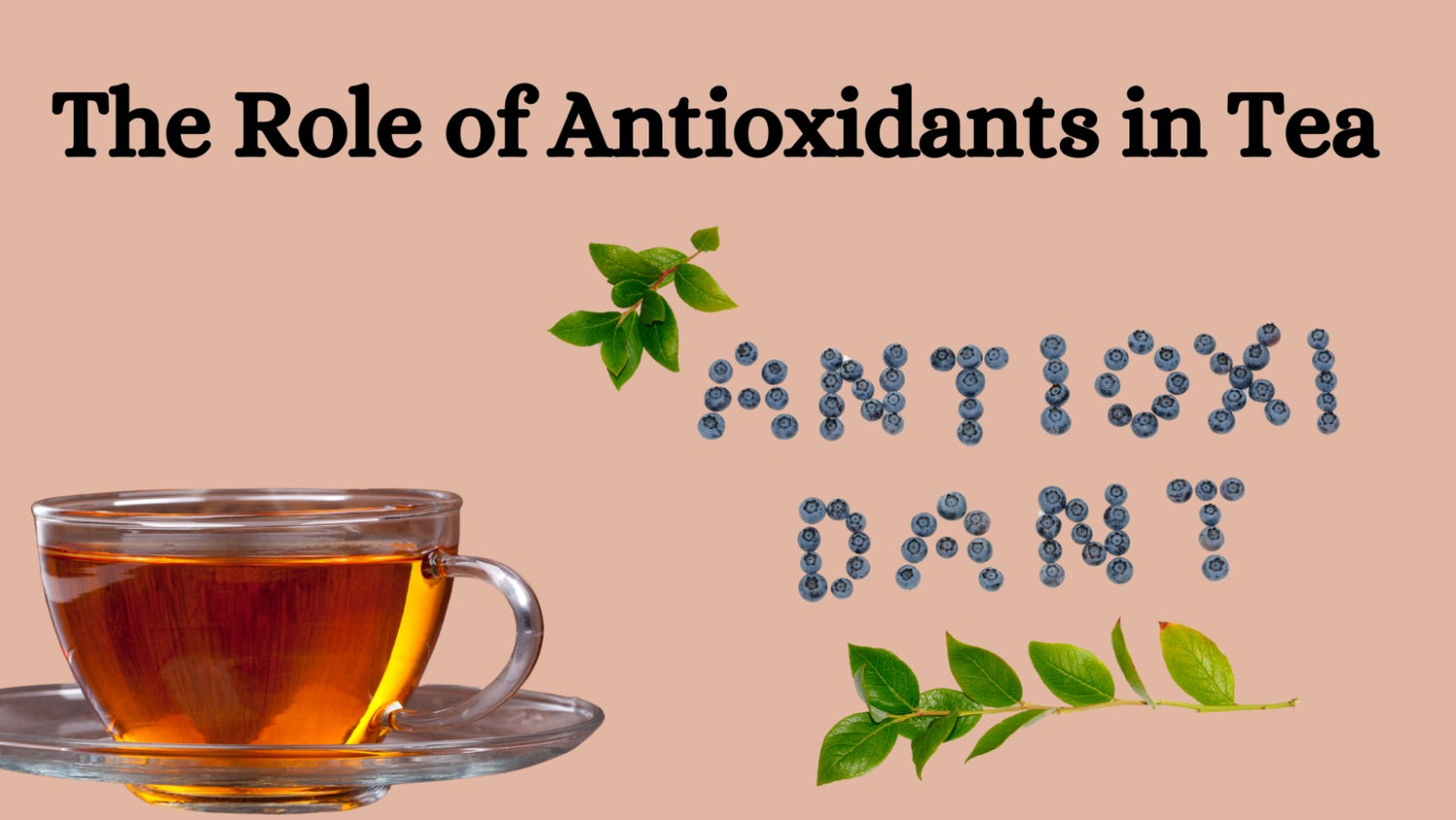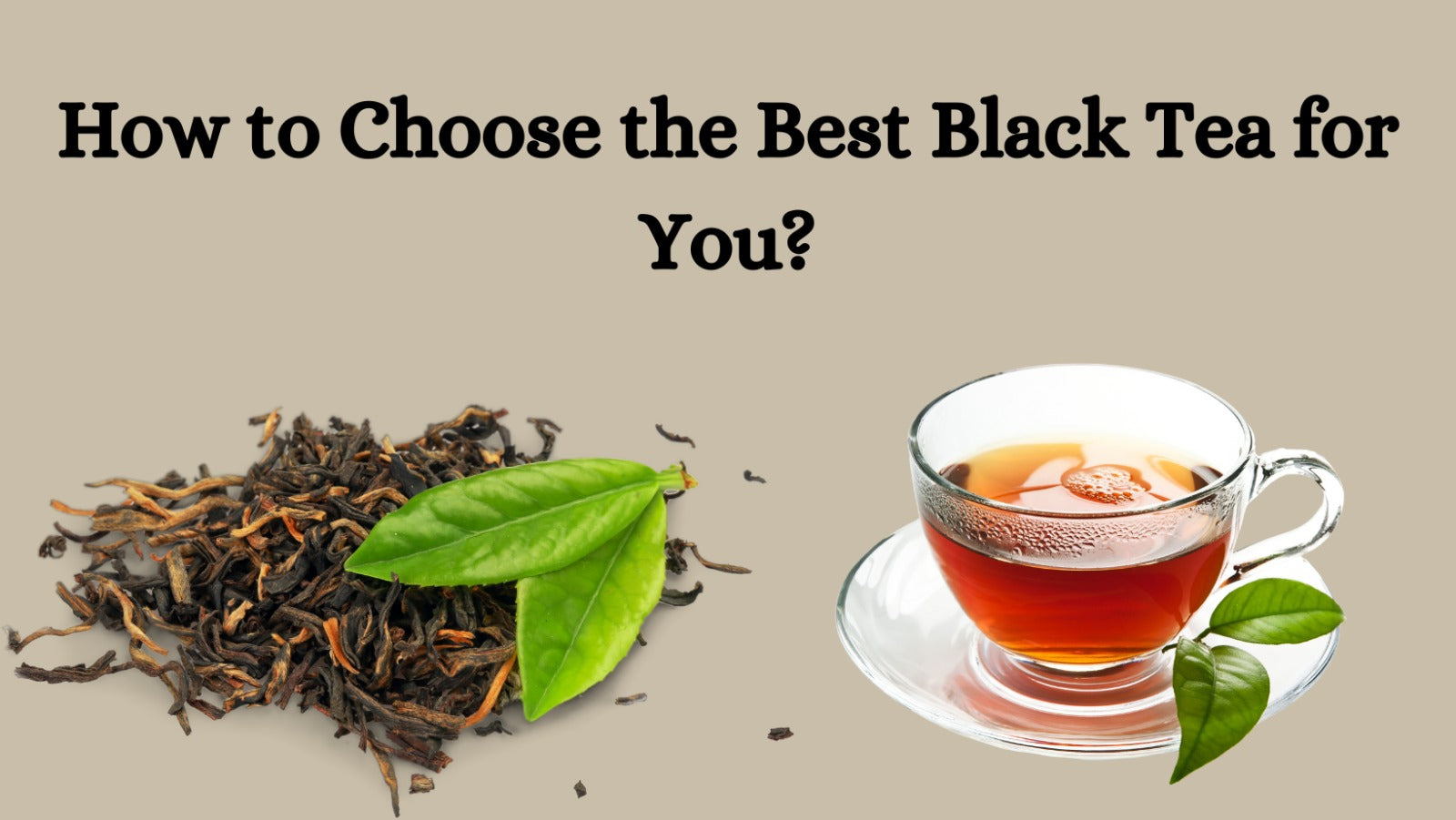Are you seeking ways to enhance your health and overall well-being? Look no further than antioxidants in tea. In this article, we will explore what antioxidants are and why they are so highly regarded for their health benefits.
Understanding the benefits of antioxidants
Antioxidants are powerful compounds found in tea that help protect our cells from damage caused by harmful molecules called free radicals. These free radicals occur naturally in our bodies and can cause oxidative stress, which has been linked to chronic diseases such as heart disease, cancer, and Alzheimer's.
Tea is packed with a variety of antioxidants, including catechins, flavonoids, and polyphenols. These compounds have been shown to reduce inflammation, improve brain function, lower blood pressure, and even aid in weight loss.
Antioxidants neutralize free radicals, thereby preventing them from harming our cells. They act as a defense system, helping to maintain the health and integrity of our body's cells.
Types of antioxidants found in tea
Tea is a rich source of antioxidants, with different types of tea containing varying amounts of these beneficial compounds. Green tea, for example, is known for its high levels of catechins, a type of antioxidant that has been widely studied for its potential health benefits.
Black tea, on the other hand, contains a different set of antioxidants, known as theaflavins and thearubigins. These compounds have been shown to have anti-inflammatory properties and may help reduce the risk of heart disease and stroke.
Herbal teas, such as chamomile or peppermint, also contain antioxidants that can contribute to overall health and well-being. While they may not contain the same types or levels of antioxidants as green or black tea, they still offer a variety of health benefits.
The role of antioxidants in promoting health
The role of antioxidants in promoting health goes beyond just protecting our cells from damage. Research has shown that antioxidants can have a positive impact on various aspects of our health.
One key benefit of antioxidants is their ability to reduce inflammation in the body. Chronic inflammation has been linked to a wide range of health issues, including heart disease, diabetes, and arthritis. By reducing inflammation, antioxidants can help lower the risk of these chronic conditions.
Antioxidants also play a role in improving brain function. Studies have shown that certain antioxidants, such as those found in green tea, can enhance cognitive function and may even help reduce the risk of neurodegenerative diseases like Alzheimer's.
Additionally, antioxidants have been found to have a positive effect on cardiovascular health. They can help lower blood pressure, improve blood flow, and reduce the risk of heart disease and stroke.
Antioxidant content in different types of tea
The antioxidant content of tea can vary depending on the type of tea and how it is processed. Green tea, for example, is known to have high levels of catechins, particularly a type called epigallocatechin gallate (EGCG). EGCG is a powerful antioxidant that has been associated with numerous health benefits.
Black tea, on the other hand, undergoes a fermentation process that leads to the formation of theaflavins and thearubigins. These compounds are responsible for the dark color and rich flavor of black tea and also offer their unique health benefits.
Herbal teas, while not technically tea as they are not derived from the Camellia sinensis plant, can still provide a good source of antioxidants. For example, chamomile tea contains antioxidants like apigenin, which has been shown to have anti-inflammatory and anti-cancer properties.
How Brewing Methods Affect Antioxidant Levels
The way tea is brewed can also impact the antioxidant levels in the final beverage. For example, steeping tea for longer periods or using higher water temperatures can result in higher levels of antioxidants being released into the tea.
However, it's important to note that excessive brewing can also lead to the release of bitter compounds, so it's best to find the right balance for your taste preferences. Steeping tea for 2-3 minutes at a temperature around 175-185°F (80-85°C) is a good starting point to maximize antioxidant extraction without compromising flavor.
Incorporating tea into a balanced diet for maximum antioxidant benefits
While drinking tea can provide a significant dose of antioxidants, it's important to remember that they are just one piece of the puzzle when it comes to a healthy diet. To maximize the benefits of antioxidants, it's important to incorporate a variety of antioxidant-rich foods into your daily meals.
Fruits and vegetables, particularly those with bright colors like berries, spinach, and bell peppers, are excellent sources of antioxidants. Nuts, seeds, and whole grains also provide a good amount of these beneficial compounds.
By combining a variety of antioxidant-rich foods with your daily tea consumption, you can create a well-rounded diet that supports your overall health and well-being.
Debunking common myths about antioxidants in tea
With so much information available about antioxidants and tea, it's important to separate fact from fiction. One common myth is that herbal teas are not as beneficial as green or black tea because they don't contain the same types of antioxidants. While it's true that herbal teas may have different antioxidant profiles, they can still provide valuable health benefits.
Another myth is that the more antioxidants, the better. While antioxidants are important for our health, it's not necessary to consume excessive amounts. The key is to maintain a balanced diet that includes a variety of antioxidant-rich foods, including tea.
Choosing high-quality teas for maximum antioxidant benefits
To reap the maximum antioxidant benefits from tea, it's important to choose high-quality teas. Look for teas that are sourced from reputable suppliers and undergo rigorous quality testing.
Organic teas can be a good choice as they are grown without the use of synthetic pesticides or fertilizers, which can potentially diminish the antioxidant content. Additionally, loose-leaf teas often have higher antioxidant levels compared to tea bags, as the leaves have more room to expand and release their beneficial compounds during brewing.
Conclusion: Embracing the power of antioxidants in tea for a healthier lifestyle
In conclusion, antioxidants in tea offer a multitude of health benefits. From reducing inflammation to improving brain function and promoting cardiovascular health, these powerful compounds are crucial in supporting our overall well-being.
Adding tea to your daily routine not only gives you a refreshing drink but also lets you benefit from its antioxidants. Whether you prefer green, black, or herbal tea, make sure to choose high-quality teas and brew them in a way that maximizes antioxidant extraction.
Discover the power of antioxidants in tea and feel the difference it can make in your life. So grab your favorite tea blend and start reaping the rewards of this ancient elixir.




